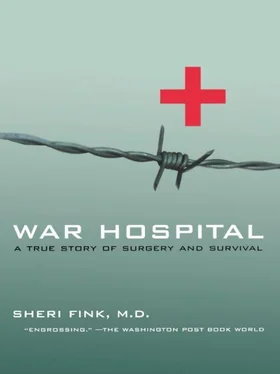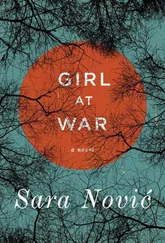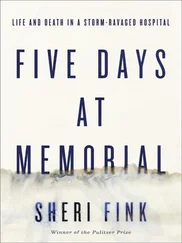“You may find fresh dead bodies in the back of the hospital,” the Red Cross delegate told him. But Eric didn’t feel he was there to risk his life collecting crime evidence—his job was to help the living.
Eric watched soldiers manhandle bedridden patients, pulling those with fractured limbs out of their beds and depositing them onto the seats of buses supposedly bound for hospitals in Croatia and Serbia. Faced with dozens of menacing soldiers, Eric felt unable to protest the nature of the evacuation and resolved to register a complaint with the army later.
A group of the Yugoslav soldiers, perhaps eager to remove a witness, lured Eric away from the hospital with a story that Serb babies had been killed by Croats in a nearby suburb. “Why is everyone so concerned about the Croats?” they goaded Eric. “What about the Serbs? Show some impartiality.”
Their appeal worked. Eric and his translator returned to their car and followed a shiny Mercedes toward the supposed crime site. A few miles outside of Vukovar, the car took off without them.
Meanwhile, back in Vukovar, the nervous Red Cross representative protested the military takeover of the hospital, cornering a dark-haired, mustachioed Yugoslav National Army major named Veselin šljivančanin in front of a TV camera.
The tall officer glared down at the pipsqueak Red Cross delegate as if he were an ingrate.
“It’s a shame for you to behave this way toward me,” the officer chastised him. “I gave you everything you asked for.”
The same camera found the Red Cross delegate later, brandishing a copy of the previous day’s agreement. In a tremulous voice rent with dramatic pauses, he read it point by point, frequently enunciating his words.
“ No weapons were allowed in neutralized zone!…”
“The compound and the hospital should have been clearly marked by Red Crosses …”
“…the Croatian authorities and the JNA will give all necessary collaboration to the ICRC…”
“Now gentlemen,” he said, to the woman and several men gathered around him, “you are witness, as I am, the present situation. Ahem.”
“As you may notice,” he continued a few moments later, “the International Committee of the Red Cross is completely unable to perform the task that was entrusted to it by the parties and cannot be in any way responsible for what has been happening early on this morning and now.”
What that was, exactly, he could not say. He did not flinch as the sound of an explosion underscored his ominous statement.
Several journalists later sought out the Yugoslav Army officer for an explanation.
“I am very proud that I am commander of these soldiers,” he said through a translator as a gaggle of young uniformed men stood behind him stifling giggles like fifth-graders trying to keep poker faces. The officer accused the Red Cross representatives of wanting to control both Vukovar and the Yugoslav Army, and he questioned the neutrality of the humanitarians because “they have never given us the help in food or medicines for our soldiers, our people.”
The sight of a commanding officer whose forces had pounded the hell out of a city of roughly 20,000 civilians just days before requesting pity for his soldiers was almost farcical. So, too, was the sight of the strung-out ICRC representative insisting on the observance of numbered rules and international laws and red-crossed white flags, while being so clearly impotent in the face of actual events. And Eric Dachy, who had labored so long and hard to enter Vukovar and care for its injured civilians, had been suckered into a wild goose chase out of town.
Comical, if it weren’t for the fact that at that very moment, 200 or more of those hauled away from the hospital that morning were being taken by Serb paramilitary and Yugoslav army soldiers to a farm called Ovčara, two and a half miles southeast of Vukovar. There, they were forced to run a gantlet, beaten, driven in groups to a dirt field, shot, and their bodies buried by bulldozer in a mass grave.
These were the first mass killings of the war. They were atrocities for which the cocky Major šljivanćanin and three of his associates would later be indicted by an international war crimes tribunal for crimes against humanity. News of the incidents spread amongst Yugoslavia’s doctors, patients, and civilians, robbing them of their trust in hospitals as safe places.
The experience of Vukovar devastated Eric Dachy. It taught him the character of the war. It made him swear that somewhere else he’d find a way to intervene before the worst occurred.
* * *
WITH VUKOVAR NEARLY EMPTY and his MSF mission a failure, Eric thought of leaving the Balkans, but the war in Croatia continued to spread, and a visit home to Belgium at the start of December changed his mind. At a friend’s birthday party, he found he could only think of Yugoslavia. Many people he knew and liked approached to ask him, “Hey, how is it there?” but their eyes glazed before the end of his answers. He was furious about what was happening in the middle of Europe, and people back home didn’t seem to realize it. He knew his friends, polite as they were, weren’t really interested.
He went to the MSF office in Brussels to discuss some things MSF might do to publicize the situation and the impotence of the European Community to stop the conflict. One idea was to place a huge ticker in front of European Community headquarters depicting the rising number of victims of the war similar to the ticker in New York City showing the rising U.S. national deficit. Another more radical idea was to stage a mock hostage situation at the airport to symbolize MSF’s utter revulsion over the situation. Still, when Eric was asked to give a radio interview, he was briefed by MSF’s communications director not to take sides and expressly forbidden to call for international military action to end the conflict. As a humanitarian, he could only describe what he’d witnessed and let the listeners make their own decisions.
Brussels, his old world, seemed unreal and artificial. For some reason he couldn’t quite verbalize, he felt drawn to the war zone. Nothing matched its intensity or reality. It felt strangely like home.
Eric returned to Belgrade and spent the winter bringing medical aid to places where war disrupted normal supply routes. In January, Croatia was recognized as an independent country and in February, peace dawned on the horizon. Both Serbs and Croats agreed on the deployment of the second largest international peacekeeping force in history. The 12,000 U.N. peacekeepers from more than thirty nations, led by an Indian general, were to supervise a ceasefire, disarm Serb militias, and oversee the withdrawal of the Yugoslav National Army from Croatia. The operation’s command headquarters would be in the neighboring Yugoslav Republic of Bosnia-Herzegovina and the troops would be known as the United Nations Protection Force or UNPROFOR.
Eric settled into his job that winter, making needs assessments of wardisplaced populations, helping rehabilitate a health center serving the elderly in a Serb-held suburb of Vukovar, and supporting existing medical structures with donations of medicines and basic surgical equipment. He purchased some personal items to make Belgrade homier. He went shopping for a winter jacket, and the one that caught his eye was black leather, with a silver zipper set to the side. Before he spotted it, the biker’s jacket was probably destined to be an elytron on the back of one of the Belgrade paramilitary toughs who roared around town after service in Croatia, suspiciously flush with cash.
Eric took the leather between his fingers. It felt thick, like elephant hide. He tried it on. Encased in the sturdy, supple jacket, he felt protected. He bought it, along with a few suit jackets, in an effort to “refine” his image after noticing that most people in Belgrade, unlike him, didn’t slouch around in tennis shoes and T-shirts. However, the leather jacket, which he wore like a talisman, only served to heighten his already conspicuous appearance and attract the bemused attention of his colleagues.
Читать дальше












